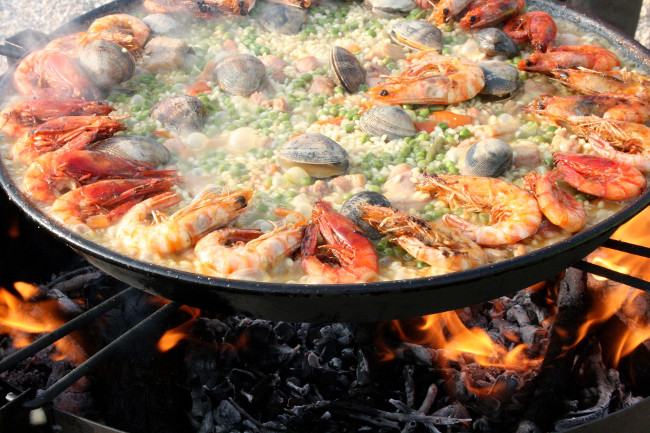It’s not just the climate that draws expats to live and work in sunny Spain, but there’s no denying that it has a positive effect on health and lifestyle. The pace of life is slower, the working week is among the shortest in the world, and social life is more outdoors than in, which makes socialising, settling in, and integrating easy. And where there’s happiness, there’s health and wellbeing which is made evident in the 2017 Internations Expat Insider Survey in which Spain ranks third for quality of life.
Healthcare in Spain is highly regarded and available to those working and paying social security contributions. Many expats also choose to take out international health insurance to cover any additional costs they may incur if they don’t have the right kind of insurance.
After moving abroad and settling into a new exciting job, you’re sure to be making all sorts of adjustments to how you live, eat, and spend your leisure time, made easier by an appreciable difference in your work-life balance. The trick is to adapt your diet and activities to your new surroundings – here’s how:

Shop local, eat seasonal
There are regional specialities abound in Spain, from jamon (dry-cured ham) in the south to seafood in the north. And you’re never far from fresh produce to accompany them. You’ll have no difficulty in tucking away your five portions of fruit and veg a day, but don’t expect to find unblemished, identically sized produce on the market stalls, and try not to feel let down when you can’t find the same produce all year round. Instead, learn to love the all-too-brief glut of cherries in summer and oranges in winter, and make friends with your local producers for great food without the food miles.
Making a meal of lunch
A Spanish day is served up rather differently from other Western countries. Forget the old trope that breakfast is the most important meal of the day. In Spain, it’s lunch and it can easily take a whole afternoon. That’s not because you’re ploughing through vast quantities of food – tapas-sized portions aren’t huge – but because lunch is a lengthy multi-course meal, usually spent in the company of colleagues, friends or family.

Forget your usual ‘lunch hour’. In Spain, lunch is at least two hours from 2pm, when shops and offices close until around 5pm. This is also the time for the famous Spanish siesta (nap) which is alive and well and, in the searing heat of a late-afternoon in summer, an energy-boosting essential.
Dinner is a lighter affair, usually eaten late in the evening. It’s not unusual to see restaurants serving meals right up to midnight. If you’re struggling to adjust to this new meal pattern, ease yourself into it and eat the Spanish way: slowly!
Leisure active
You don’t have to try too hard to live an active life in Spain – outside the peak summer months the climate is benign, and an active, outdoor lifestyle is a positive pleasure. The health benefits from taking a 30-minute walk each day can easily be gained, more so in Spain where you can enjoy wonderful weather and blissful views, whether you’re by the coast, in a city, or near the countryside.
Exploring the neighbourhood by bicycle is another wonderful way to enjoy your new surroundings and exercise at the same time. Spain is also a hiker’s paradise, best enjoyed in spring and autumn. Whatever you’re doing, do remember to keep hydrated and don’t forget your sunscreen – Spain’s afternoon sun is surprisingly fierce, even in the winter months.

Sport active
Spain cuts an impressive figure in the sporting world, so you won’t struggle to find recreation grounds with football pitches and tennis courts to hone your skills. Cycling is popular too, at all levels. This is reflected in the huge interest in La Vuelta, an annual bicycle race that takes in many regions of the country – catch it if you can and be inspired!
Skiers should head to the slopes of the Sierra Nevada where, depending on snowfall, the season runs from around early December through to April. Golfers within easy striking distance of the Costa del Sol are spoilt for choice.
Locally active
Survey after survey confirms what you may already know: expats in Spain settle in quickly, helped along by a warm and friendly welcome from locals. Signing up for an activity nearby aids this process along nicely. City and town-dwellers should be able to find a gym nearby, while smaller communities usually have regular, organised classes in yoga, Pilates, and similar activities.
A word of warning: tuition is likely to be exclusively in Spanish so if you’re not confident in the language, try to pair up with a colleague or friend who is. Alternatively, watch the instructor like a hawk, see what everyone else does and follow suit. You can take comfort in the fact that you’re toning your muscles and honing your language skills in one go.






















